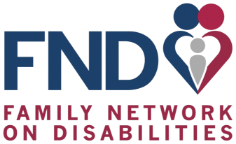INformation Hub
Tourette Syndrome
Tourette Syndrome
Links updated, July 2015
See fact sheets on other disabilities
The Individuals with Disabilities Education Act (IDEA), our nation’s special education law, defines 14 categories of disability under which a child may be found eligible for special education and related services. One of those categories is “Other Health Impairment,” or OHI, for short. Within OHI’s definition, numerous disabilities and medical conditions are explicitly named. Tourette syndrome is one such.
This short resource page accompanies a longer fact sheet on Other Health Impairment and provides a brief overview of Tourette syndrome and connections to sources of additional information.
A Brief Look at Tourette Syndrome
Tourette syndrome is a neurobiological disorder characterized by tics (involuntary, rapid, sudden movements) and/or vocal outbursts that occur repeatedly. It’s an inherited, neurological disorder that is first noticed in childhood, usually between the ages of 7 and 10. The syndrome is four times as likely to occur in boys as in girls.
Tourette sydrome was once strongly associated with the exclamation of obscene words or socially inappropriate remarks. In fact, only a small number of people with Tourette’s have this symptom. For most, Tourette’s involves:
- tics, along a range of simple (e.g., rapid eye-blinking, facial grimacing, shoulder-shrugging) to complex (involving several muscle groups, such as hopping, bending, or twisting); and
- vocalizations, also along a range of simple (throat-clearing, sniffing, grunting) to complex (involving words or phrases).
It’s estimated that 2% of the population has Tourette syndrome. This may be a conservative estimate, since many people with very mild tics may be unaware of them and never seek medical attention. A study by Kurlan, McDermott, et al. (2001) indicates that over 19% of children in regular education classes have tics and over 23% of children in special education classes have tics.
What about treatment? According to the National Institute of Neurological Disorders and Stroke’s fact sheet on the syndrome (listed below, under resources):
Because tic symptoms do not often cause impairment, the majority of people with TS require no medication for tic suppression. However, effective medications are available for those whose symptoms interfere with functioning.
Are children with Tourette syndrome automatically eligible for special education and related services? The plain answer is: No. Eligibility will depend on several factors and a careful study of the evaluation results. As IDEA makes clear in its definition of “other health impairment,” having the syndrome is not the only condition to be met for eligibility. (For one, the child’s educational performance must be adversely affected as a result of the syndrome.)
Interestingly, Tourette syndrome was explicitly added to this disability category in the 2004 Amendments to IDEA. According to the U.S. Department of Education, the syndrome was specifically named in the definition of “other health impairment” because:
…Tourette syndrome is commonly misunderstood to be a behavioral or emotional condition, rather than a neurological condition. Therefore, including Tourette syndrome in the definition of other health impairment may help correct the misperception of Tourette syndrome as a behavioral or conduct disorder and prevent the misdiagnosis of their needs. (71 Fed. Reg. at 46550)
Resources of More Information on Tourette Syndrome
National Tourette Syndrome Association
http://tsa-usa.org/
Tourette Syndrome “Plus”
http://www.tourettesyndrome.net/
Tourette Syndrome Fact Sheet
from the National Institute of Neurological Disorders and Stroke
http://www.ninds.nih.gov/disorders/tourette/detail_tourette.htm
Información en español.
http://tsa-usa.org/TouretteAssocEspanol/bienvenidos.html
Información en español.
http://espanol.ninds.nih.gov/trastornos/sindrome_de_tourette.htm
SOURCE ARTICLE: Center for Parent Information & Resources
Give us a call at (727) 523-1130 or (800) 825-5736 or request a callback by clicking below.
311 South Missouri Ave, Clearwater, FL 33756
(727) 523-1130
(800) 825-5736

